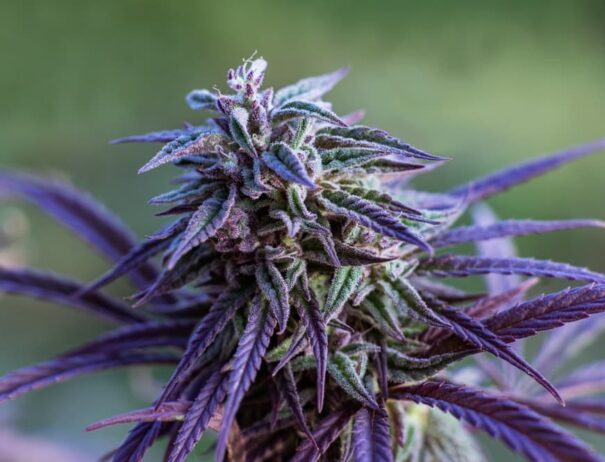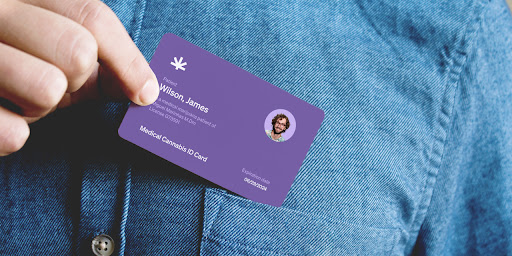Yes, Delta-8 THC Products Are Legal on the Federal Level
When the federal government made hemp legal, they effectively legalized other compounds found in hemp legal, also. And, Delta-9 THC – the psychoactive compound THC that gives people a cannabis high – is still illegal in marijuana in amounts greater than 0.3 percent by weight.
But Delta-8 THC, which has mild psychoactive effects, is not illegal. It is found in trace amounts in hemp plants and typically is manufactured from hemp plants and used for consumer products. These products have become more popular, especially in states where marijuana is still illegal. Far less is known about the health effects of consuming Delta-8 THC. Meanwhile, the Drug Enforcement Administration confirmed late last year that delta-8 THC was legal.
Some growers will grow hemp that concentrates minor cannabinoids, like Delta-THC, for consumer products. The appellate court noted that Delta-8 THC, despite its psychoactive and intoxicating effects, falls within the federal law’s definition of hemp and is legal. The Appeals Court expressly indicated that it would not substitute its judgment for that of Congress regarding the use of Delta-8 in consumer products. If Congress created an unintended loophole that allows Delta-8 to be used as a mild intoxicant by consumers, they must fix it through legislation.
The appellate ruling was related to Delta-8 THC’s legality. An e-cigarettes and vaping product company claimed another company sold counterfeit Delta-8 THC products. The company selling the counterfeit versions claimed the trademark and counterfeit versions were invalid because Delta-8 THC is illegal. The appellate court ruled that Delta-8 products could be trademarked and counterfeited because the federal government declared Delta-8 was legal. Industry experts believe the federal government is likely to make sure Delta-8 is safe and ensure it cannot get into the hands of minors.
The FDA sent out a set of warning letters to companies that manufacture and sell Delta-8 THC. The letters were similar to letters sent to warn companies about the unauthorized marketing of CBD.
Delta-8 tetrahydrocannabinol is found in hemp and marijuana plants. Delta-8 THC is one of over cannabinoids produced naturally by the cannabis plant, but the amount of Delta-8 THC is found in insignificant amounts in the plant. To manufacture and market Delta-8 THC, the amount of Delta-8 THC must be increased via a manufacturing process using hemp plants.
The FDA is aware that products with Delta-8 THC in them are being sold, despite the fact that the agency has not approved any for sale. Some of these products are labeled as health or medical products without sufficient acknowledgment of Delta-8 THC as the active ingredient. Marketing unapproved products with unsubstantiated therapeutic claims is not only a violation of federal law but can also put users at risk until these products have been proven to be safe and effective. The FDA has not yet approved these products for consumer use. This deceptive marketing of unproven treatments raises significant public health concerns. Concerns include product formulations and product labeling, other cannabinoid and terpene content, and unknown and undocumented Delta-8 THC concentrations.
Known Adverse Events from Delta-8 THC Consumption
104 reports of adverse events from consumption of Delta-8 THC, including:
- 77 percent of adults suffered unanticipated events, with eight percent of adverse events experienced by children.
- 55 percent of these adverse events resulted in medical intervention by EMS or admission into a hospital.
- 66 percent had an adverse event after consuming Delta-8 THC in an edible, like a cookie or gummies.
- Adverse reactions may include hallucinations, loss of consciousness, vomiting, tremor, anxiety, and dizziness.
- National poison control centers had reports of 2,362 poisoning cases with Delta-8 THC between January 2021 and February 2022.
- 58 percent of the poisoning cases were in adults, 41 percent of cases involved pediatric patients under 18.
- 40 percent of exposure cases to Delta-8 THC were unintentional, with 82 percent of the exposure cases occurring in pediatric patients.
- 70% required health care facility evaluation, with 8% resulting in admission to a critical care unit. 45% of patients requiring health care facility evaluation were pediatric patients.
- A single pediatric case had a medical outcome of death.
Delta-8 THC also has a psychoactive and intoxicating effect like Delta 9 THC, but they are less potent. One of the FDA’s concerns is that once consumers realize they will not get as high with the Delta-8 THC, they may increase the dosage. In this way, people using Delta-8 THC may consume significantly larger doses over time.
The amount of Delta-8 THC available in hemp is relatively low, so manufacturers of products with Delta-8 in them must use additional solvents and chemicals to remove Delta-8 compounds in their products. Some manufacturers may use potentially poisonous chemicals to make Delta 8 THC in sufficient amounts and required strength in a chemical synthesis process. The Delta-8 therefore may have unsafe household chemicals in the final product. These chemicals, if consumed or inhaled, can be harmful. Manufacturers may even use chemicals to change the color of the Delta-8 THC. If there is uncertainty concerning other potential contaminants that may be present or produced depending on the composition of the starting raw material, that may potentially be harmful to the consumers.
The reality of Delta-8 THC products is that they are often sold by mail, and it is difficult to determine if the consumer is old enough to order them. The labels are arguably attractive to children, as with gummies, chocolates, cookies, etcetera. Consumers can purchase them in gas stations and convenience stores with inadequate enforcement of age limits. As we have seen, all of these factor into the possibility that pediatric patients are exposed to Delta-8 THC products. Every consumer, merchant, and manufacturer must include sufficient warnings on Delta-8 THC products.
We are in the middle of a cannabis revolution in the United States, and Cannabutter Digest has all the information you need to stay up to date with all the latest trends. Look no further than Cannabutter Digest to find cannabis news, recipes, and products!

Get Your Free eBook!
Download our FREE resource, The Ultimate Edibles Guidebook, full of recipes, infusion tips and everything you need to make your first batch of edibles today!



